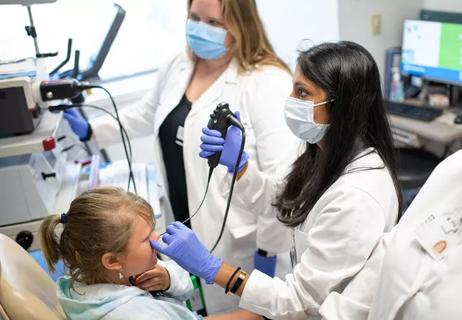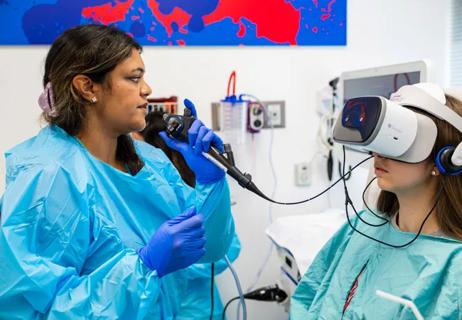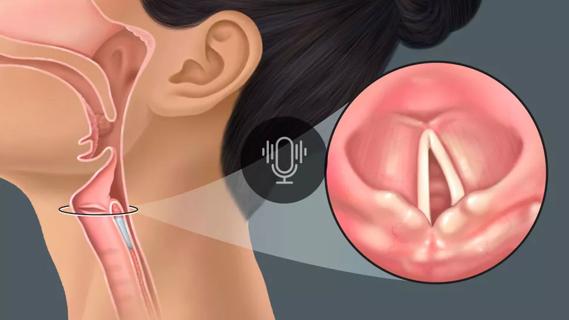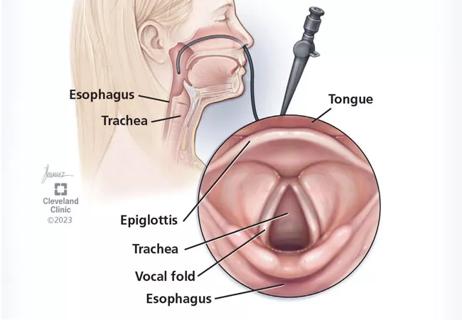A multidisciplinary approach and individualized plan of care are imperative
Podcast content: This podcast is available to listen to online.
Listen to podcast online (https://www.buzzsprout.com/2241209/14737238)
When people hear the term “professional voice,” they likely conjure up images of singers and actors. But anyone who makes a living talking can be considered a professional voice user.
Advertisement
Cleveland Clinic is a non-profit academic medical center. Advertising on our site helps support our mission. We do not endorse non-Cleveland Clinic products or services. Policy
“That includes most of us. Like 90% of the workforce in the United States is communicated based,” says Claudio Milstein, PhD, a speech-language pathologist and director of Cleveland Clinic’s Voice Center. “That means if you don’t have a voice, you cannot do your job.”
In a recent episode of Cleveland Clinic’s Head and Neck Innovations podcast, Dr. Millstein shares the work done by a team of speech-language pathologists and laryngologists at the Voice Center to care for patients with a variety of disorders. He discusses:
Click the podcast player above to listen to the episode now, or read on for a short edited excerpt. Check out more Head and Neck Innovations episodes at clevelandclinic.org/podcasts/head-and-neck-innovations or wherever you get your podcasts.
Podcast host Paul Bryson, MD, MBA: Do you want to speak a little bit to how we might approach a patient getting a surgery? What they might expect afterward? Or even if a patient is trying to avoid surgery, there are often opportunities to avoid that.
Dr. Milstein: These are patients where the collaboration between all of us is really, really important. So, for example, the preoperative care; suppose a patient will need surgery and we've come to the conclusion that they have a lesion or something that requires a surgical procedure. What's really important is to do a very good preoperative assessment. And I have the luxury of having a longer time with each patient so I can go in-depth with each patient on what to expect from surgery.
Advertisement
And, most important, then is to do a plan for postoperative care. Why is that super important? Well, everybody knows that, for example, if you have knee surgery you are not going to go running two days after the procedure. With voice, we're not so aware of those things. And the thing is that the vocal cords after surgery don't really hurt. So, it's very easy to do too much too soon – to talk too loud, to go back to singing with a lot of power too early. And that can lead to traumatizing the vocal cords again or to a longer recovery period.
So, it's really important to work with each patient, have a very good idea of what their vocal load is – that means how much and in what manner they use their voice on a daily basis – and have a very individualized plan for each patient on how to navigate their voice use for the week, two weeks, three weeks post-surgery. And that is one area where we really individualize the care for each one.
Advertisement
Advertisement

A wide-ranging discussion on the latest in laryngology

By working in tandem, a pediatric otolaryngologist and speech-language pathologist can diagnose conditions and develop treatment plans in the same visit

New innovations in upper airway care and insights into the Pediatric Voice Center

Insight on larynx disorders and treatments

3 pediatric gastroenterologists discuss advances in their diagnostic toolkits

Injections and surgical procedures are among the therapies for patients with early and late vocal cord paralysis

Cleveland Clinic physicians weigh in

A recently published case series highlights the broad range of laryngeal findings that can present among individuals with EDS